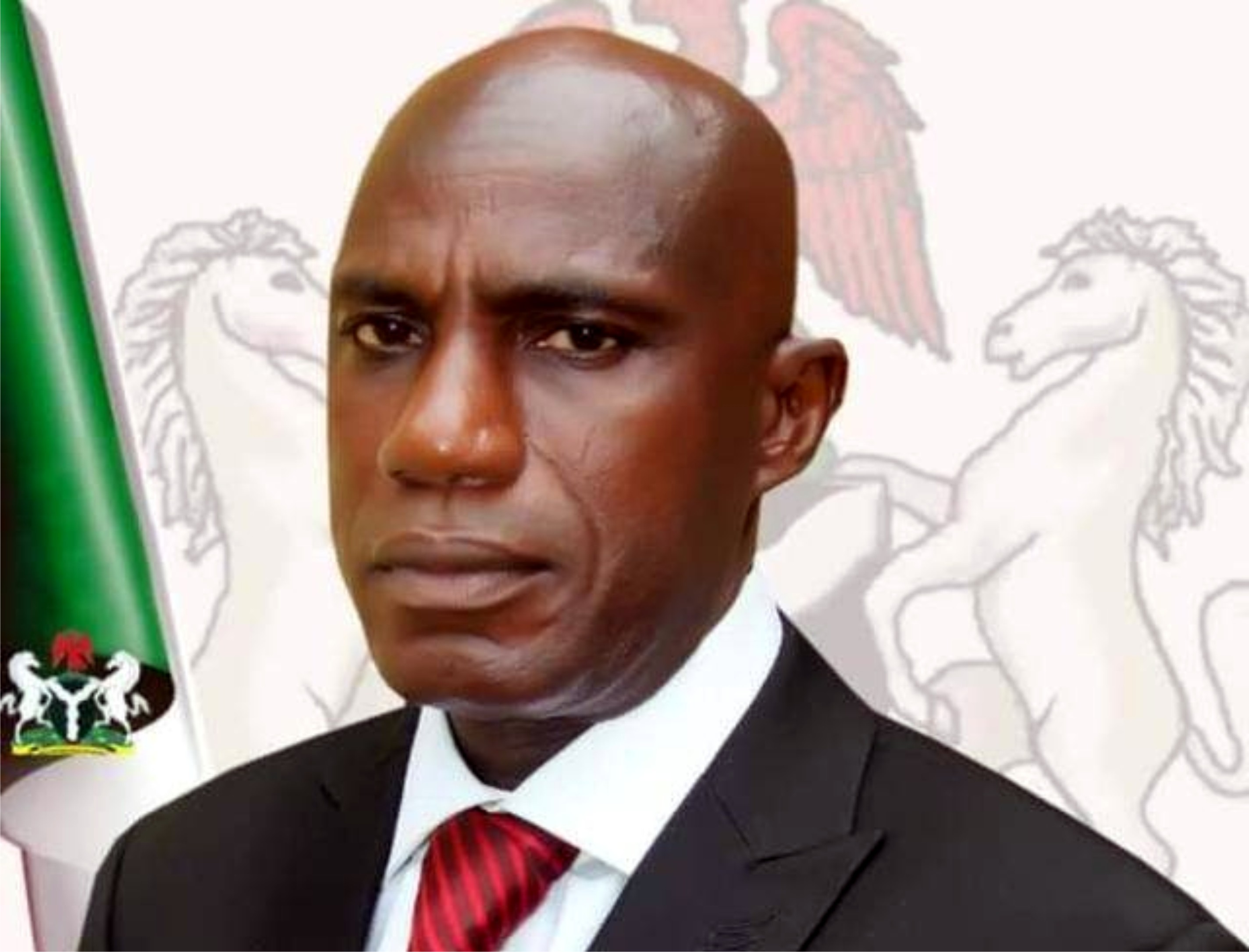Business
Employment Bureau’ll Strengthen Eleme Economy – Chairman

The Chairman of Eleme Local Government Area, Hon. Philip Okparaji, has said that the Eleme Employment Bureau inaugurated on Monday was geared towards strengthening the local government’s economy.
Hon. Okparaji who made this known in a telephone interview with The Tide, said that the six member bureau, chaired by Chief (Bar) Obo Danwi, has the responsibilities of collecting data on the number of indigenous staff working in the companies operating in Eleme LGA.
He added that the bureau would also get the record of companies and their level of compliance with the “Federal Government Local Content Law”, on employment and find out how they carry out their corporate social responsibilities.
The LGA boss also said that the bureau would go into dialogue with the companies to ensure that the communities comply with the government’s policy on ease of doing business in the community.
Hon. Okparaji said the move would create employment for Eleme youths and also generate more businesses, “thereby strengthening the economy” of the area.
“Ease of doing business committee would look into multiple taxation issue and ensure that there is harmonisation.
“We are not here to tax companies unnecessarily. Our duty is to collect our rents and ensure the companies have conducive atmosphere to do business, fulfill their social responsibilities and also make profits to remain in business.
“l advise the multinational companies to carry out meaningful projects in their social responsibilities.
“I also urge my business men and women to intensify actions in marketing their businesses by creating a platform that would establish partnership with multinational companies”, he said.
He said that his administration would ensure that the rights of Eleme people were respected and protected, even in managerial positions, “ because we also have academically qualified personnel in the LGA”.
Business
Electricity: Bands BCDE Suffer No Power

As DisCos struggle to meet the required 20 hours power supply to “Band A” customers following shortage of gas which has hindered power generation since January, customers on Bands B, C, D, and E are left with no light, according to The Tide’s source.
The source learnt that the distribution companies were concentrating more on the Band A customers to keep their Band A feeders from being downgraded.
Band A customers enjoy a minimum of 20 hours of electricity daily.
On April 3, the Nigerian Electricity Regulatory Commission announced that subsidies would no longer be paid for the electricity consumed by Band A customers.
The electricity tariff for Band A customers was revised upward from N68 per kilowatt-hour to N255/KWh.
1 kWh is the amount of energy that could be used if a 1,000-watt appliance is kept running for an hour. For example, a 100-watt light bulb operating for 10 hours would use 1 kWh.
After the power subsidy was removed, the NERC directed the 11 DisCos to release their lists of Band A customers, who must get at least a 20-hour supply daily.
The regulator and the Minister of Power, Adebayo Adelabu, emphasised that there would be sanctions should the distribution companies fail to supply Band A customers with 20 hours of electricity.
The DisCos were also mandated to inform customers whenever they failed to meet the required minimum service level.
NERC said where a DisCo failed to deliver on the committed level of service on a Band A feeder for two consecutive days, the DisCo should, by 10 am the next day, publish on its website an explanation of the reasons for the failure and update the affected customers on the timeline for restoration of service to the committed level.
It stated that if a customer’s service level improves to at least 20 hours, they should be upgraded from lower service bands to Band A, adding that if the DisCo fails to meet the committed service level to a Band A feeder for seven consecutive days, the feeder will be downgraded to the recorded level of supply by the applicable framework.
In their efforts to meet up with the service level, the source gathered that some of the DisCos were gradually resorting to diverting the little allocation they get to the Band A customers.
This is in spite of the fact that the gas constraints that have hindered power generation since the beginning of the year have yet to be addressed.
Many communities said they could not boast 30 hours of power supply since January, a development the government blamed on the refusal of gas companies to supply gas to power-generating companies due to heavy debt.
Recall that recently, the IBEDC spokesperson, Busolami Tunwase, explained that, “One of the primary factors is the low supply of gas to generating companies, which has led to a gradual decrease in available generation on the grid.
Business
‘Inappropriate Insider Dealing’ Earns Julius Berger NGX Sanction

Authorities at the Nigerian Exchange (NGX) have sanctioned Julius Berger Nigeria (JBN) Plc for engaging in inappropriate insider dealing in shares.
According to a document obtained by The Tide’s source, JBN, Nigeria’s leading construction company, was sanctioned for “insider dealing during closed period”.
Incorporated in 1970, Julius Berger, Nigeria, which was incorporated in 1970, became a publicly quoted company in 1991 and has more than 10,000 shareholders.
NGX Regulatory Company (NGX RegCo), the self regulatory organisation (SRO) that regulates activities at the NGX, stated that JBN breached certain provisions of the listing rules and was thus sanctioned accordingly.
According to NGX RegCo, JBN violated provisions on “closed period”, in breach of the construction company’s commitment to adhere to listing rules and standards.
The NGX had tightened its rules and regulations to checkmate boardroom intrigues and block information arbitrage that tend to confer advantages on companies’ directors.
The amendments expanded the scope and authority of corporate financial reporting while eliminating gaps that allowed companies to sidetrack relevant rules in stage-managing corporate compliance.
The enhanced framework provided clarity and greater disclosures on directors’ trading in shares, corporate liability for accuracy and compliance of financial statement, dissuade bogus dividend payment and other sundry boardroom’s maneuverings that tend to favour insiders.
The amendments came on the heels of noticeable increase in violations of rules on ‘closed period’, a period when directors are banned from trading in the shares of their companies.
Rule 17.17 of the NGX disallows insiders and their connected persons from trading in the shares or bonds of their companies during the ‘closed period’ or any period during which trading is restricted.
This period is mostly at a period of sensitive material information, like prior knowledge of financials, dividends or major corporate changes, which places directors and other insiders at advantage above other general and retail investors.
A review of the disclosure violations at the stock market had shown that all violations in 2021 were related to violation of Rule 17.17 on ‘closed period’.
Under the amendments, in addition to the provisions of relevant accounting standards, laws, rules and requirements regarding preparation of financial statements, companies are now required to include several specific declarations on securities transactions by directors, changes in shareholding structure, self-assessment on compliance with corporate governance standards and internal code for directors on securities transactions among others.
Business
Nigerian Breweries To Suspend Operations In Two Plants

Nigerian Breweries Plc says it is planning for a company-wide reorganisation which include the temporary suspension of operations in two of its nine breweries.
It said this is part of a company-wide reorganisation as part of a strategic recovery plan aimed at securing a resilient and sustainable future for its stakeholders.
The Business Recovery Plan includes a rights issue and a company-wide reorganisation exercise which includes temporary suspension of two of its nine breweries and an optimisation of production capacity in the other seven breweries, some of which have received significant capital investment in recent years.
These measures include relocating and redistributing employees to the remaining seven breweries and offering support and severance packages to those that become unavoidably affected.
The company said this move is essential to improve its operational efficiency, financial stability and enhance a return of the business to profitability, in the face of the persistently challenging business environment.
In letters signed by the company’s Human Resource Director, Grace Omo-Lamai, and addressed to the leadership of the National Union of Food, Beverage & Tobacco Employees (NUFBTE) and the Food Beverage and Tobacco Senior Staff Association (FOBTOB), the company informed both unions that its proposed plan would include operational efficiency measures and a company-wide reorganisation that includes the temporary suspension of operations in two of its nine breweries.
As a result, and in accordance with labour requirements, the company invited the unions to discussions on the implications of the proposed measures.
Recall that the company recently notified the Nigerian Exchange Group (NGX) of its plan to raise capital of up to N600 billion by way of a rights issue, as a means of restoring the company’s balance sheet to a healthy position following the net finance expenses of N189 billion recorded in 2023 driven mainly by a foreign exchange loss of N153 billion resulting from the devaluation of the naira.
Speaking on these developments, the Managing Director/CEO, Nigerian Breweries, Hans Essaadi, described the business recovery plan as strategic and vital for business continuity.
-

 Nation1 day ago
Nation1 day agoSenators, Reps To Resume Plenary In Remodelled Main Chambers
-

 Rivers1 day ago
Rivers1 day agoDon Seeks Incorporation Of Anti-Corruption Study In Curriculum
-

 Oil & Energy1 day ago
Oil & Energy1 day agoNSCDC’s Anti-Vandal Squad Uncovers Artisanal Refinery In Rivers Community
-

 Front Pix1 day ago
Front Pix1 day agoOur Policies Are Geared Towards Protecting Rivers Interest -Fubara
-

 Maritime1 day ago
Maritime1 day agoFall Off Container Crushes Woman To Death
-

 Opinion1 day ago
Opinion1 day agoElectricity Tariff Increase: Problem Or Solution?
-

 News1 day ago
News1 day agoFubara Inaugurates Health Centre At Ndoni, Commends Odili
-

 Business1 day ago
Business1 day agoNIPCO Gas Reduces CNG Price To N200/Scm

